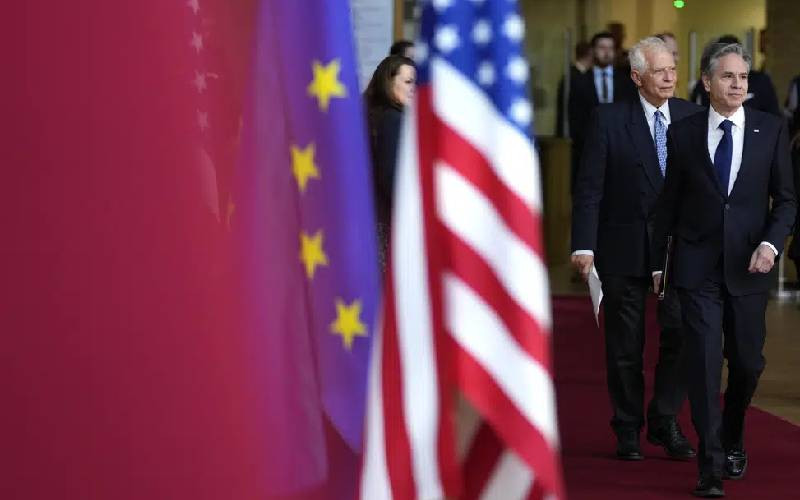
On the eve of a major European Union diplomatic foray into China, the bloc's foreign policy chief on Tuesday lashed out at Beijing for its support of Russia amid the invasion of Ukraine, and called it "a blatant violation" of its United Nations commitments.
"There cannot be siding with the aggressor," Josep Borrell said ahead of a trip to Beijing by the EU Commission President Ursula von der Leyen and French President Emmanuel Macron. "There is a clear expectation from a permanent member of the (U.N.) Security Council to stand up in defense of international rules-based order and China as a moral duty to contribute to a fair peace."